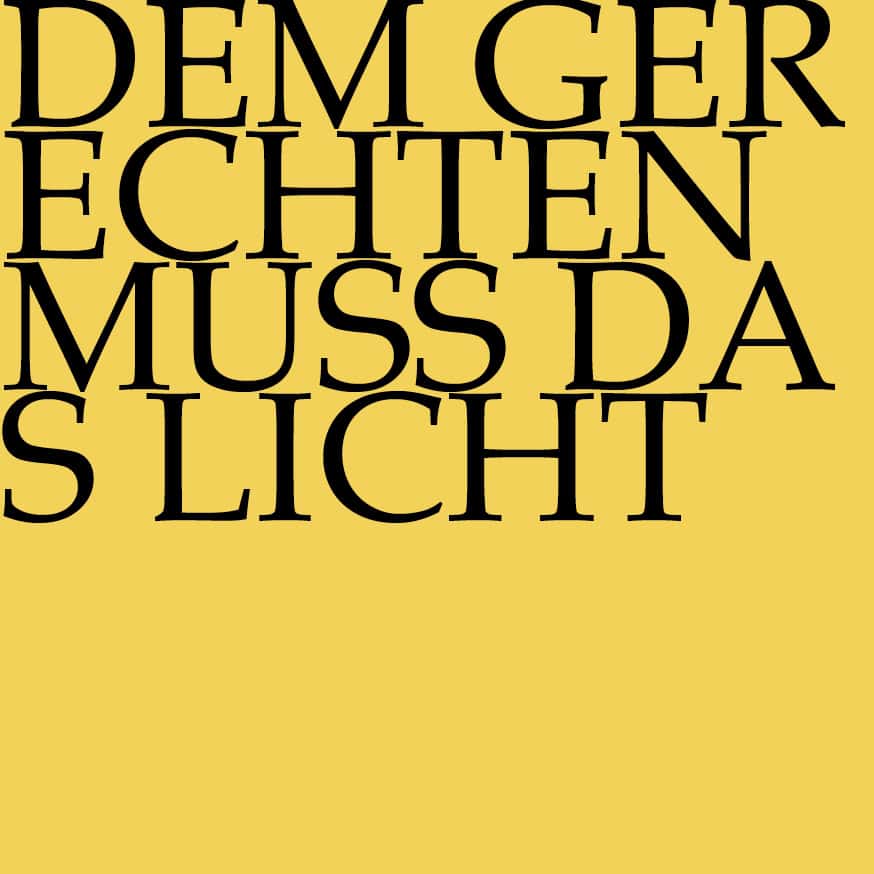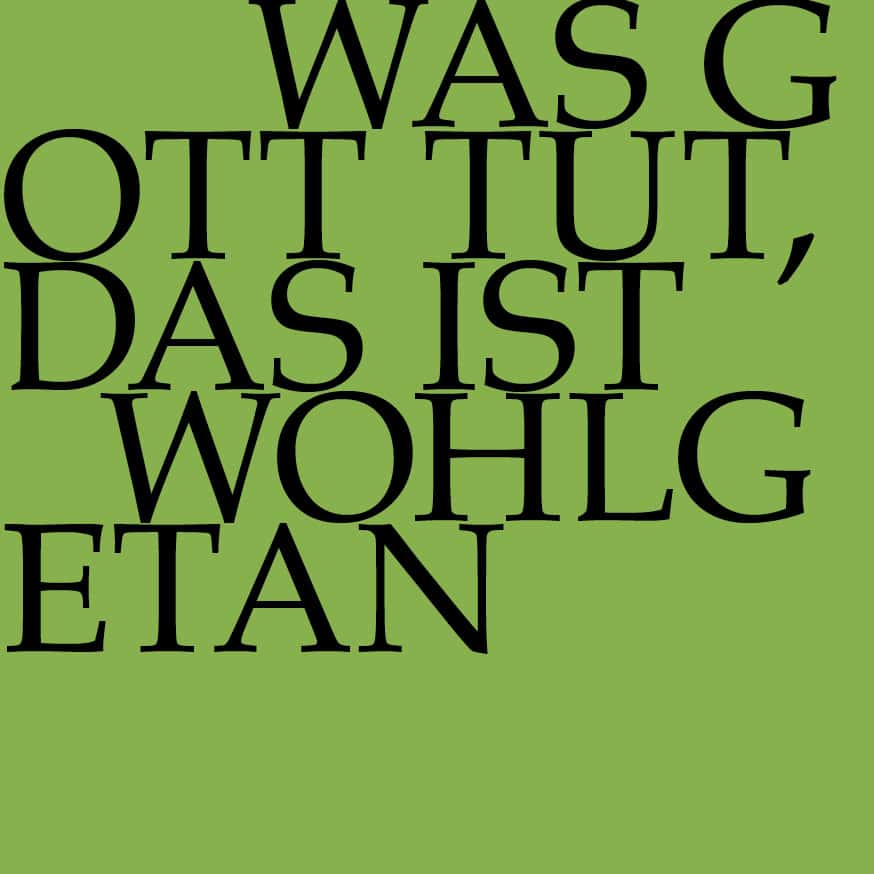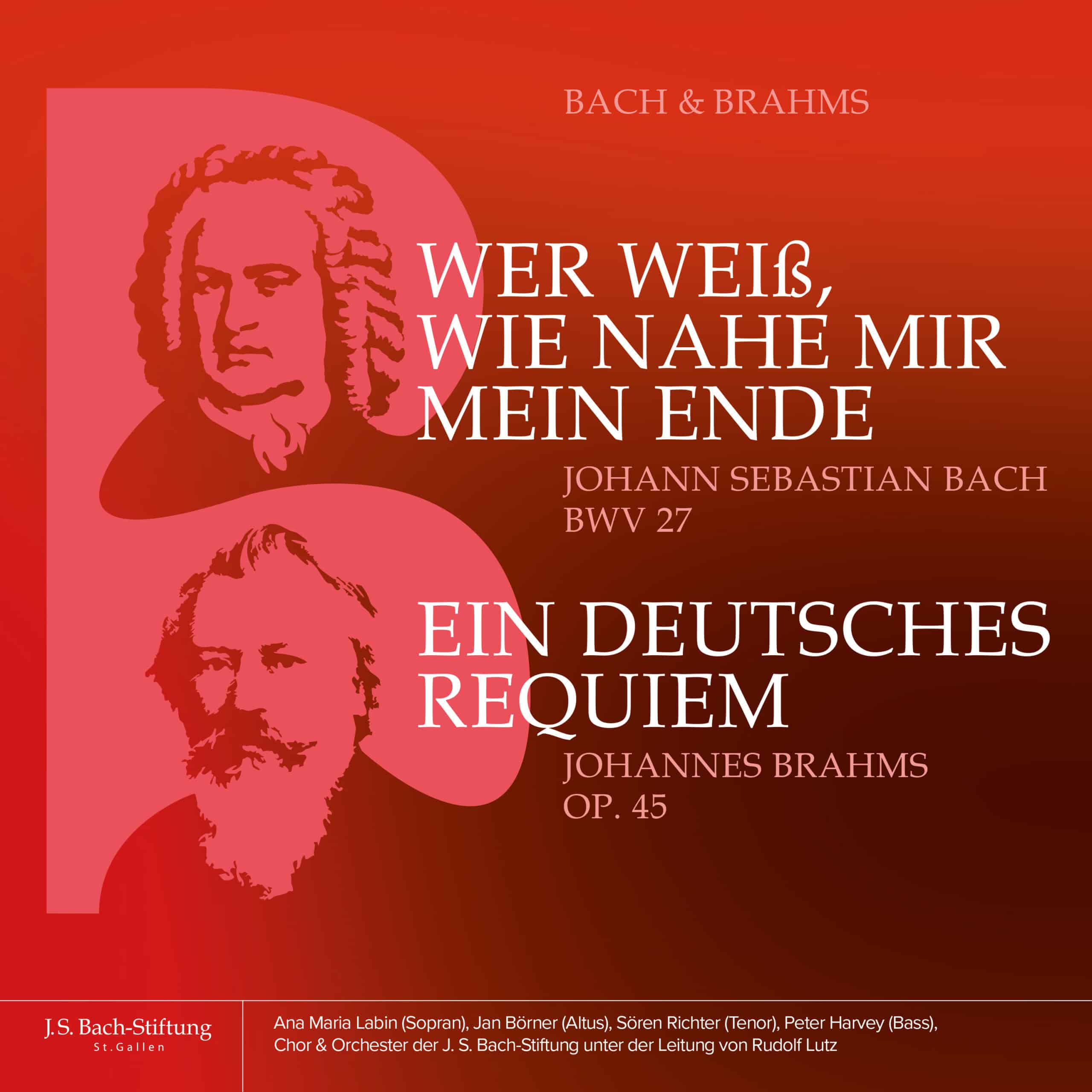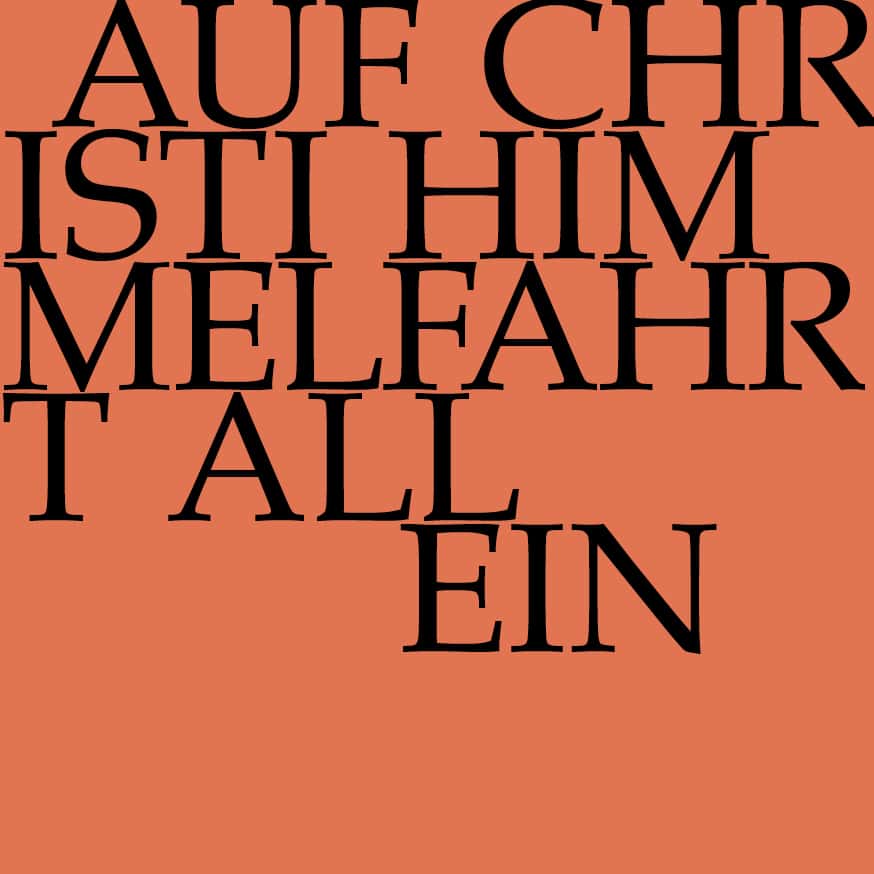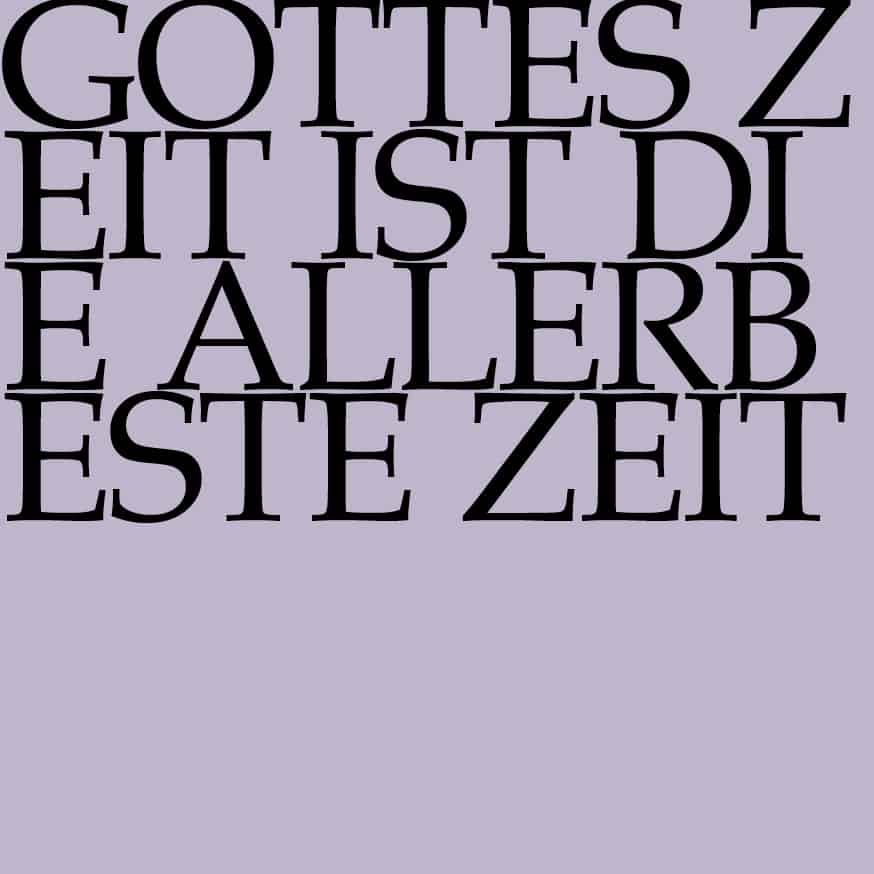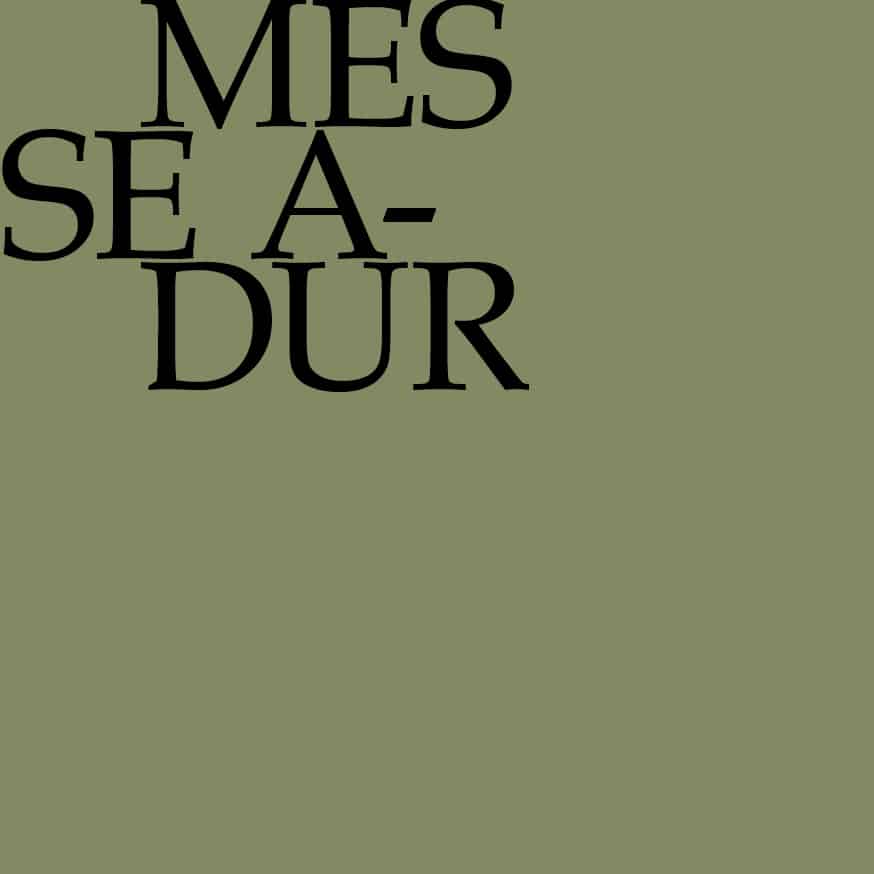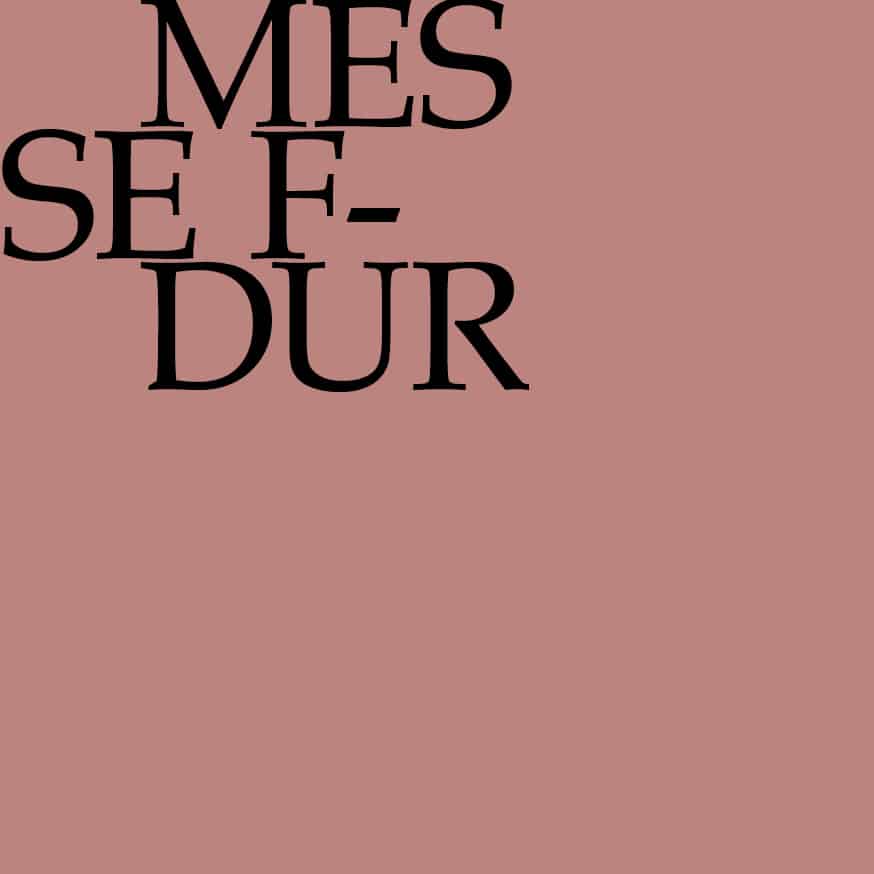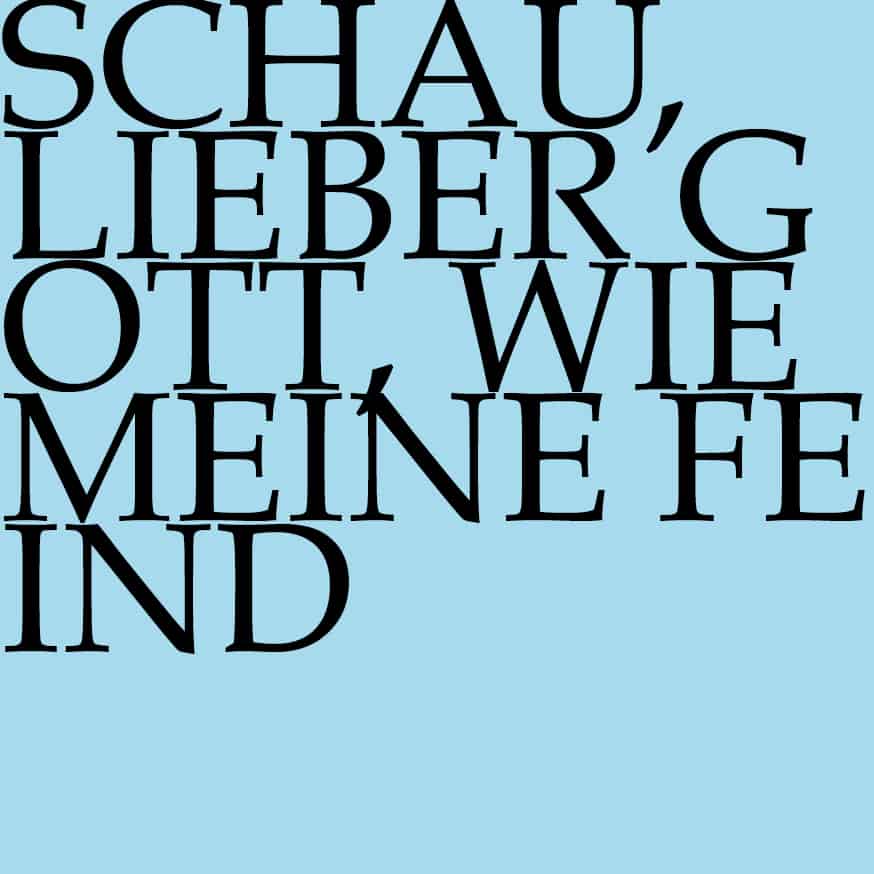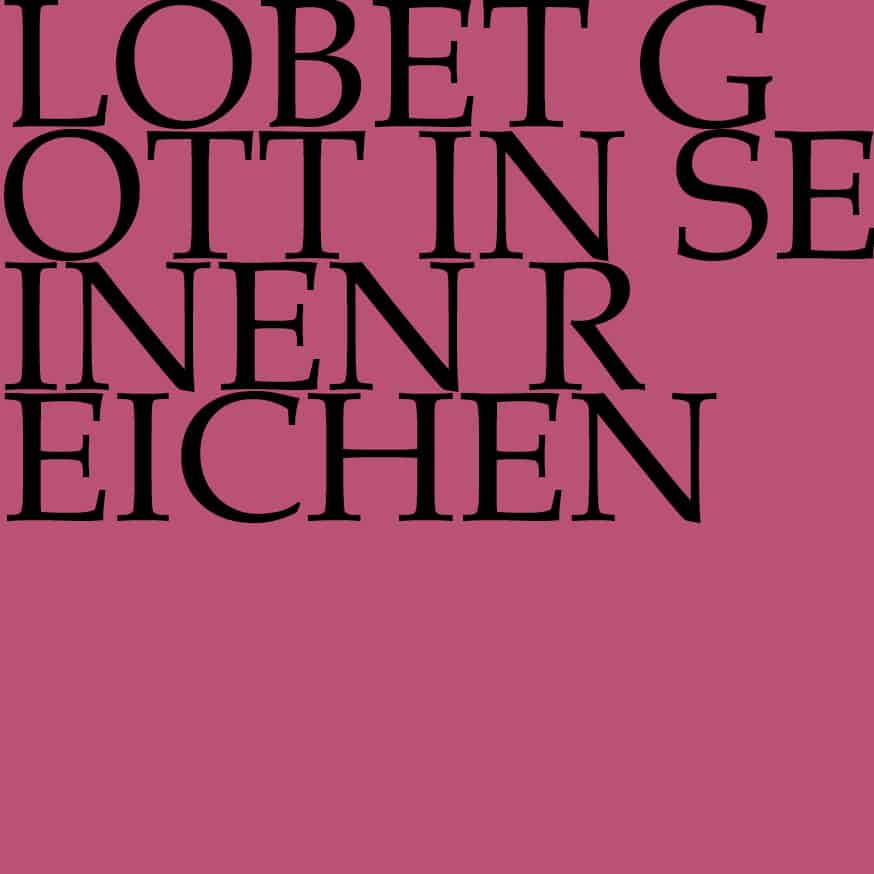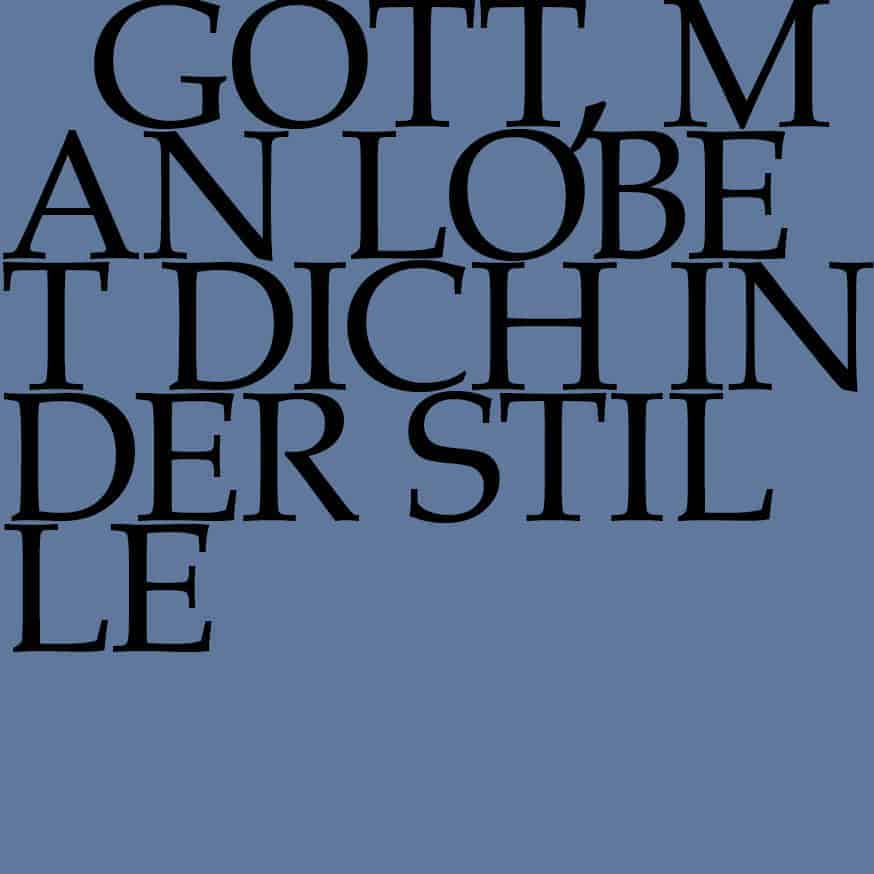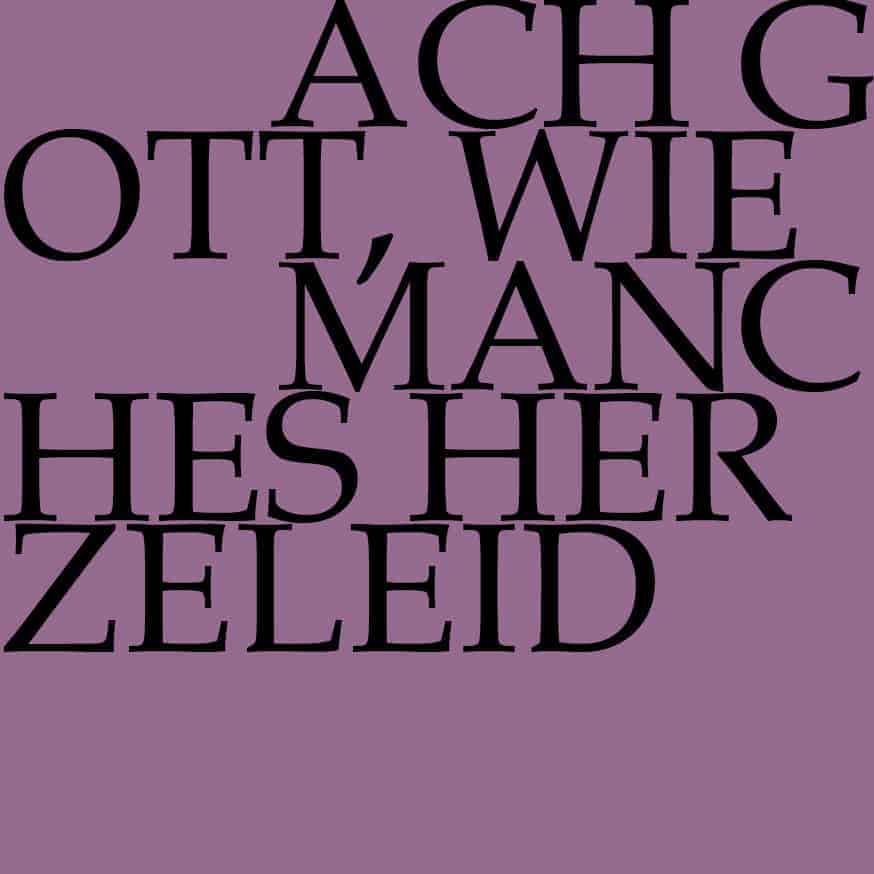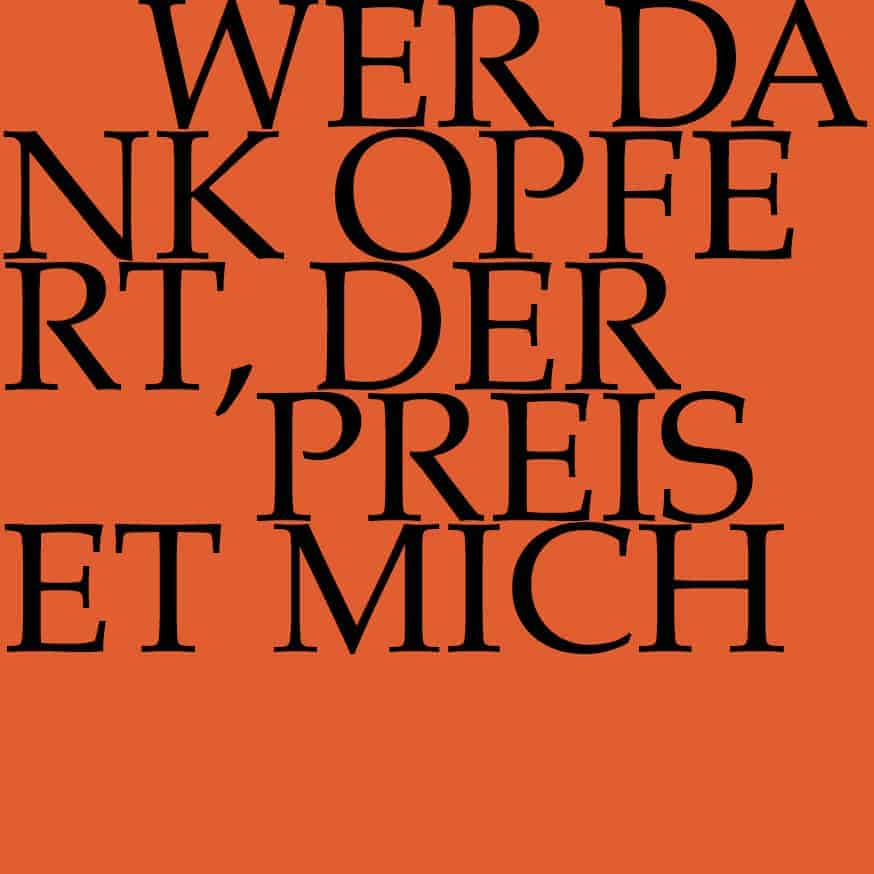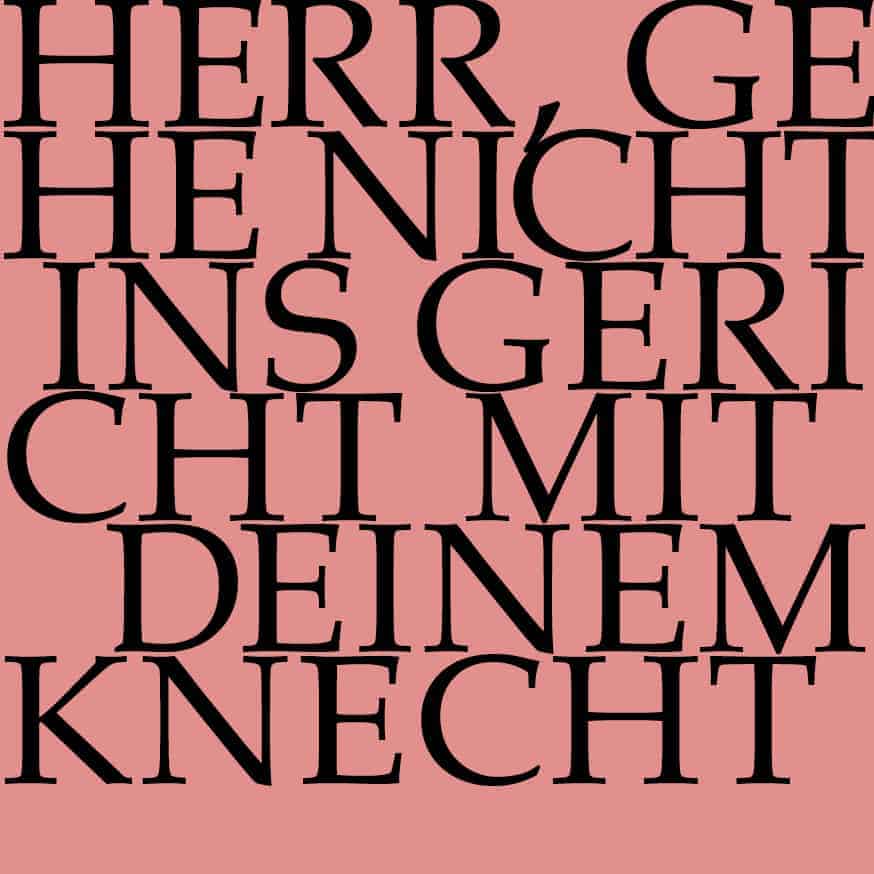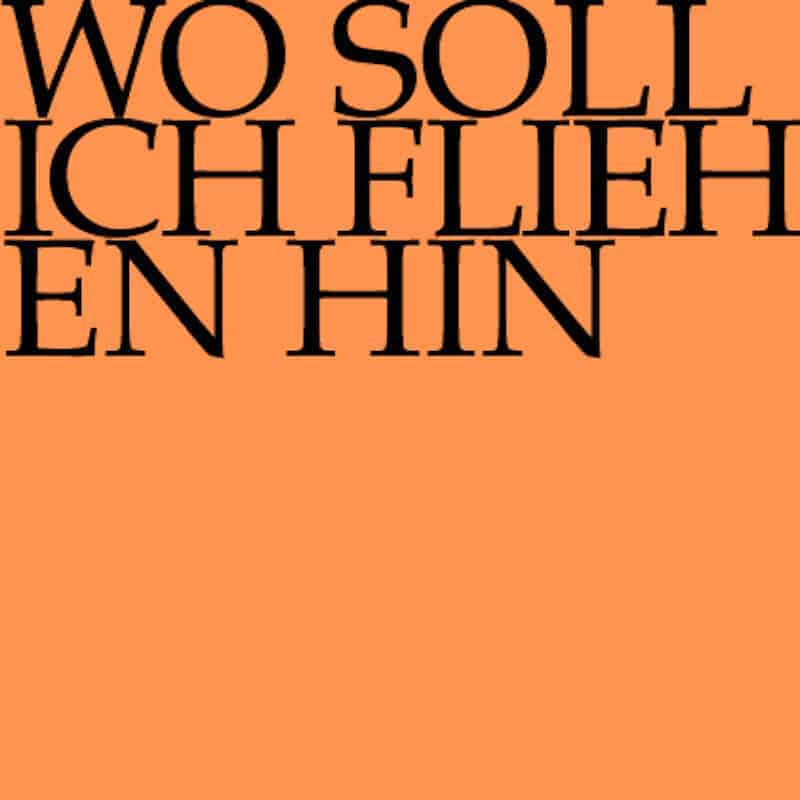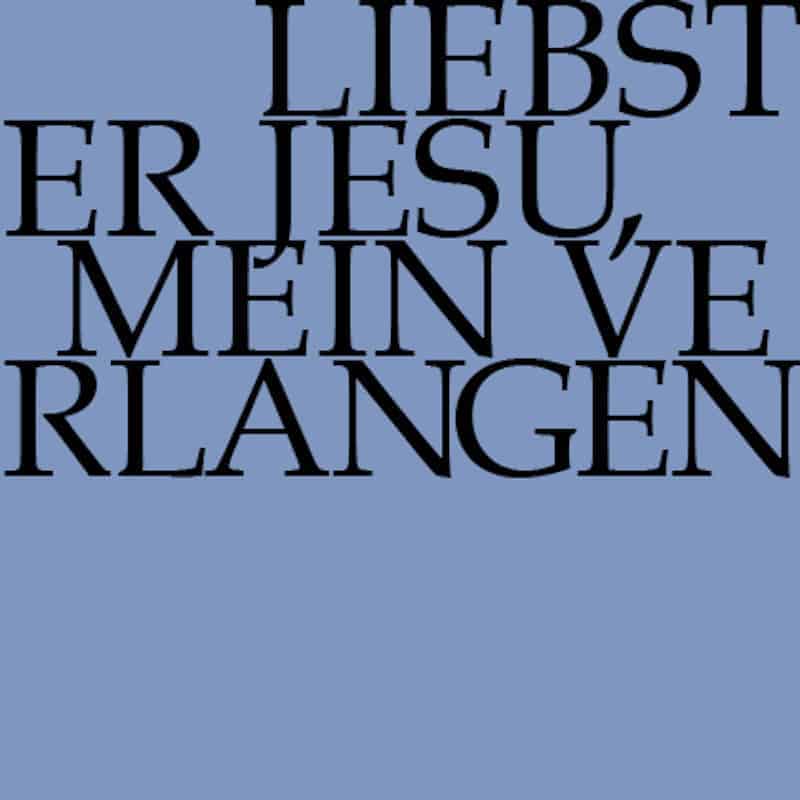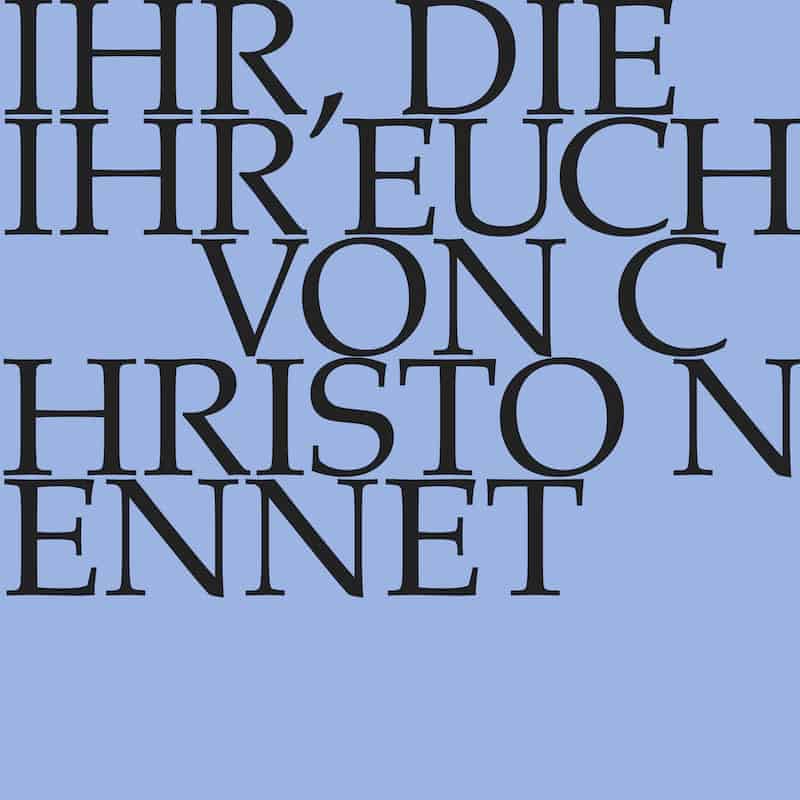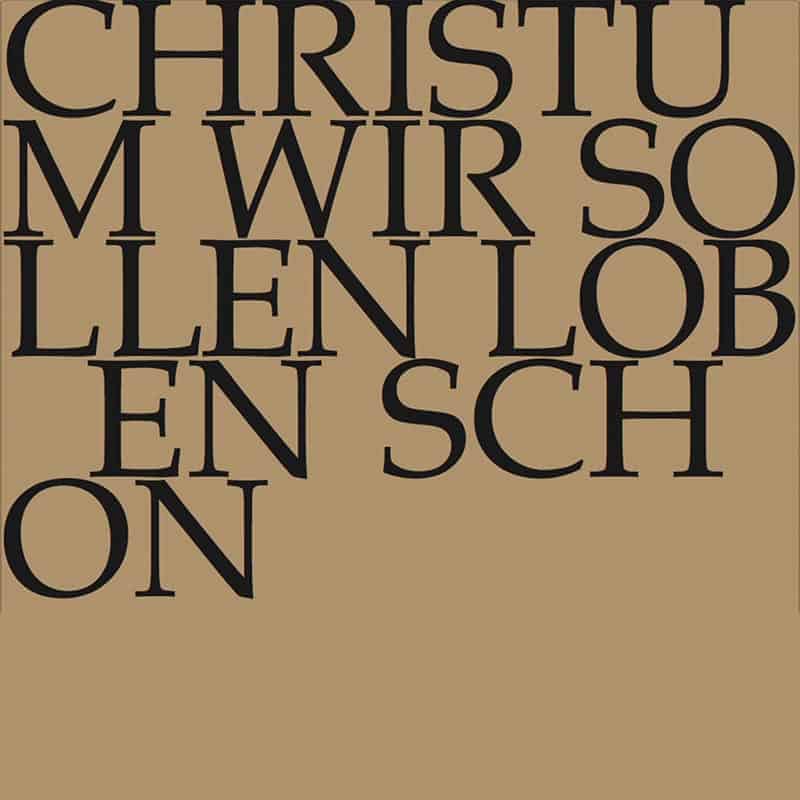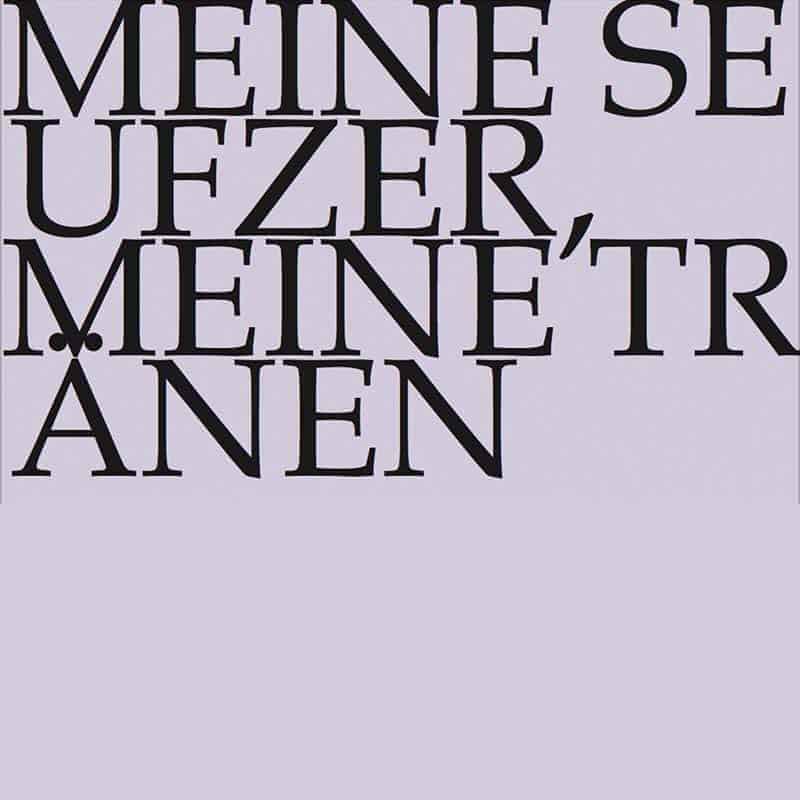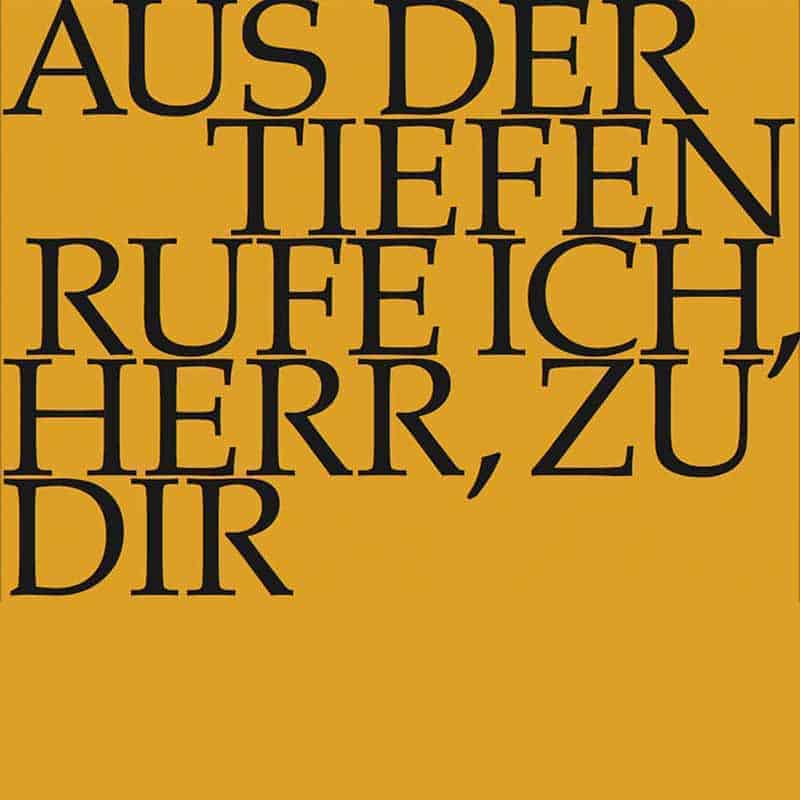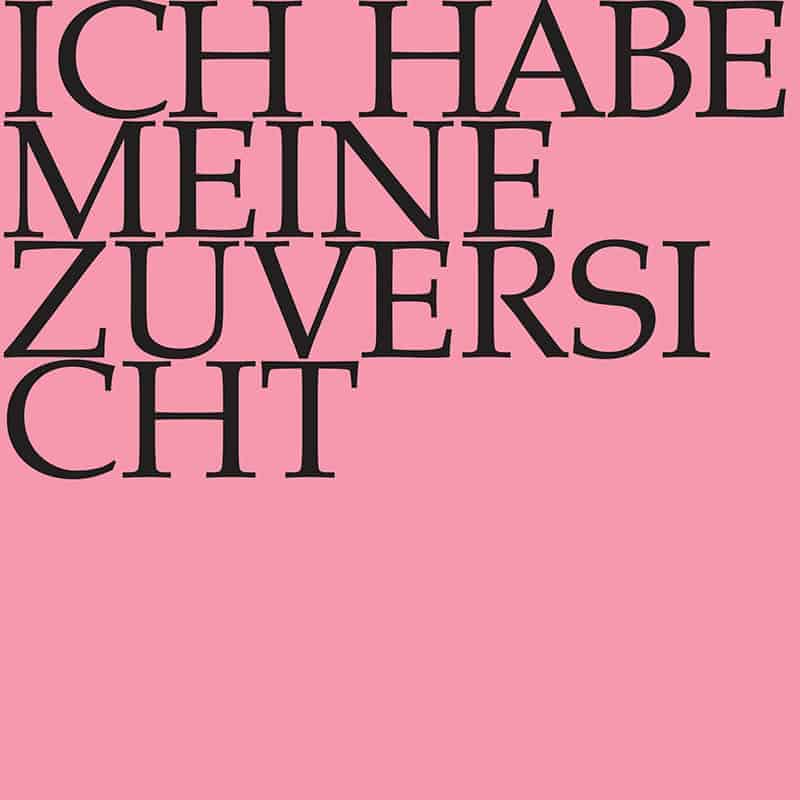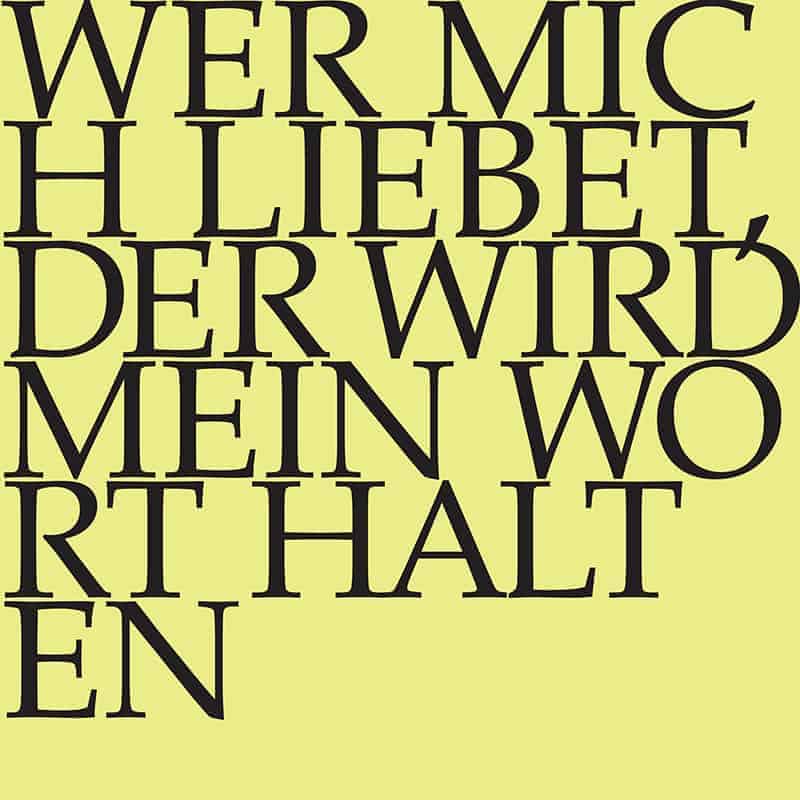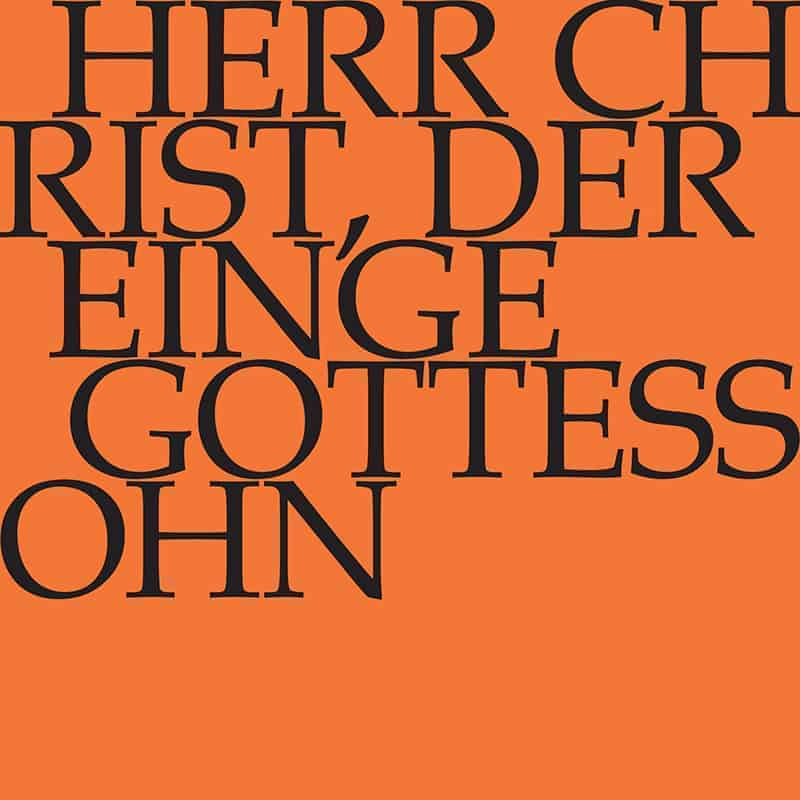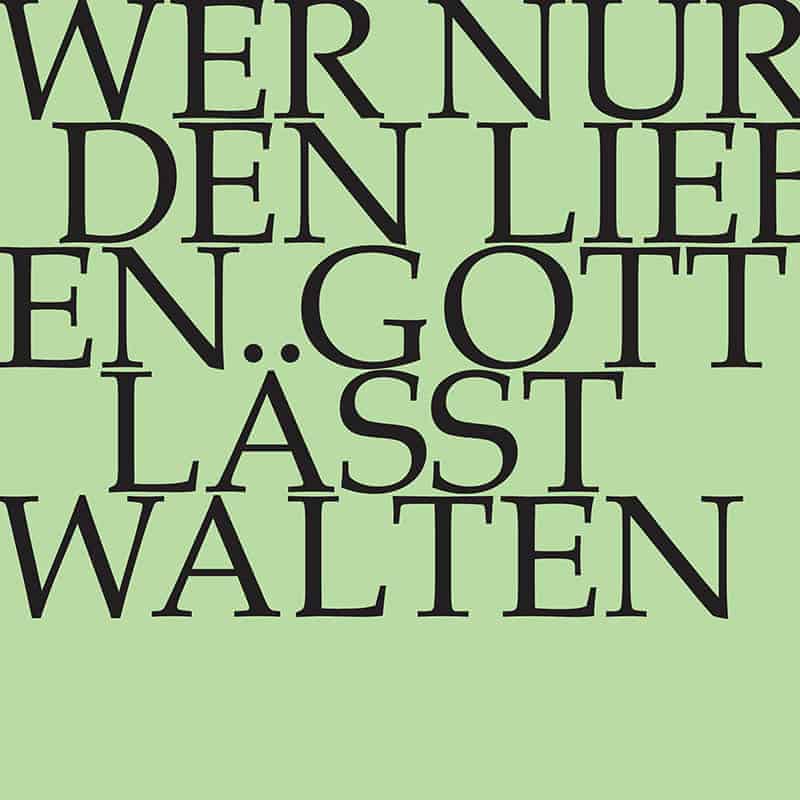(For the righteous must the light) for soprano, alto, tenor and bass, vocal ensemble, trumpet I-III, timpani, transverse flute I+II, oboe I+II, strings and basso continuo
Archives
Was Gott tut, das ist wohlgetan
(What God doth, that is rightly done) for soprano, alto, tenor and bass, vocal ensemble, horn I+II, timpani, transverse flute, oboe, strings and basso continuo
Bach & Brahms
In November 2024, the “With Brahms and Bach” tour took the Choir and Orchestra of the J. S. Bach Foundation, under the baton of Rudolf Lutz, to St. Gallen, Basel, Bern, Zurich, and Schaffhausen. Marking a departure from their usual repertoire, the ensemble performed a major work by the great Romantic composer – and devoted … Read More
Auf Christi Himmelfahrt allein
(On Christ’s ascent to heaven alone) for alto, tenor and bass, vocal ensemble, oboe I+II, oboe da caccia, trumpet, horn I+II, strings and basso continuo
Gottes Zeit ist die allerbeste Zeit
(God’s own time is the very finest time) «Actus tragicus», for soprano, alto, tenor and bass, recorders I+II, viola da gamba I+II and basso continuo “Gottes Zeit ist die allerbeste Zeit” (God’s own time is the very finest time) was originally scheduled for performance on Friday 20 March 2020 in Speicher. Corona, however, put an … Read More
Messe A-Dur
(Mass in A Major) for soprano, alto and bass, vocal ensemble, transverse flute I+II, strings and basso continuo
Messe F-Dur
(Mass in F Major) for soprano, alto and bass, vocal ensemble, horn I+II, oboe I+II, strings and basso continuo
Schau, lieber Gott, wie meine Feind
(Behold, dear God, how all my foes) for alto, tenor and bass, vocal ensemble, strings and basso continuo
Lobet Gott in seinen Reichen
(Laud to God in all his kingdoms) for soprano, alto, tenor and bass, vocal ensemble, trumpet I–III, timpani, transverse flute I+II oboe I+II, strings and basso continuo
Gott, man lobet dich in der Stille
(God, we praise thee now in the stillness) for soprano, alto, tenor and bass, vocal ensemble, trumpet I-III, timpani, oboe I+II, strings and basso continuo
Ach Gott, wie manches Herzeleid
(Ah God, how oft a heartfelt grief) for the Second Sunday after Epiphany, for soprano, alto, tenor and bass, vocal ensemble, trombone, oboe d’amore I+II, strings and basso continuo
Wer Dank opfert, der preiset mich
(Who thanks giveth, he praiseth me) for soprano, alto, tenor and bass, vocal ensemble, oboe I+II, strings and basso continuo
Herr, gehe nicht ins Gericht mit deinem Knecht
(Lord, go thou not into court with this thy thrall) for soprano, alto, tenor and bass, vocal ensemble, oboe I+II, corno da tirarsi, strings and basso continuo
Wo soll ich fliehen hin
(Where shall I refuge find) for soprano, alto, tenor and bass, vocal ensemble, oboe I+II, tromba da tirarsi, strings and basso continuo
Liebster Jesu, mein Verlangen
(Dearest Jesus, my desiring) for soprano and bass, vocal ensemble, oboe, strings and basso continuo
Ihr, die ihr euch von Christo nennet
(You who the name of Christ have taken) for soprano, alto, tenor and bass, transverse flute I+II, oboe I+II, strings und basso continuo Cantata BWV 164 was first performed in Leipzig on the 13th Sunday after Trinity in 1725. Nevertheless, the work could easily be mistaken as a latecomer to Bach’s Weimar cantata oeuvre: the … Read More
Was Gott tut, das ist wohlgetan
(What God doth, that is rightly done) for soprano, alto, tenor and bass, vocal ensemble, oboe I+II, taille d’hautbois, strings and basso continuo
Christum wir sollen loben schon
(To Christ we should sing praises now) for soprano, alto, tenor and bass, vocal ensemble, zink, trombone I-III, oboe d’ amore, strings and basso continuo Written for the Second Day of Christmas in 1724, the cantata “Christum wir sollen loben schon” (To Christ we should sing praises now) is distinguished by a stately tone and … Read More
Meine Seufzer, meine Tränen
(Of my sighing, of my crying) for soprano, alto, tenor and bas, flauto dolce I+II, oboe da caccia, bassoon, strings and basso continuo Cantata BWV 13 “Meine Seufzer, meine Tränen” (Of my sighing, of my crying), marked in hand on the score as a “Concerto da Chiesa”, is a work revealing and eliciting a deep … Read More
Aus der Tiefen rufe ich, Herr, zu dir
(From the depths now do I call, Lord, to thee) for soprano, alto, tenor and bass, oboe, bassoon, violin, 2 violas, continuo Cantata BWV 131 is based on the early liturgical Penitential Psalm 130, one of the texts of the Christian tradition most frequently set to music. Thanks to a hand-written note ascribed to a … Read More
Ich habe meine Zuversicht
(I have now all my confidence) for soprano, alto, tenor and bass, oboe I+II, taille, organo obbligato, bassoon and strings
Wer mich liebet, der wird mein Wort halten
(He who loves me will keep my commandments) for soprano, bass and four-part vocal ensemble, trumpet I+II, timpani, bassoon, strings and continuo
Herr Christ, der einge Gottessohn
(Lord Christ, the only Son of God) for soprano, alto, tenor and bass, vocal ensemble, trombone, flauto piccolo, transverse flute, oboe I+II, bassoon, strings and continuo Cantata 96 on Elisabeth Cruciger’s hymn “Herr Christ, der einge Gottessohn” (Lord Christ, the only son of God) opens with an introductory chorus in a style reminiscent of Christmas … Read More
Wer nur den lieben Gott läßt walten
(The man who leaves to god all power) for soprano, alto, tenor and bass, vocal ensemble, oboe I+II, strings and continuo Composed for the Fifth Sunday after Trinity in 1724, the cantata “Wer nur den lieben Gott läßt walten” (The man who leaves to God all power) at first appears to be a typical representative … Read More


